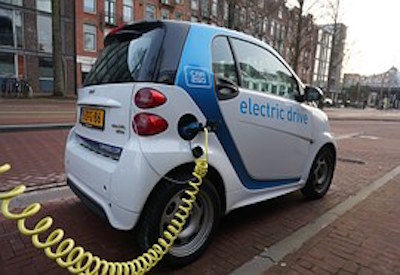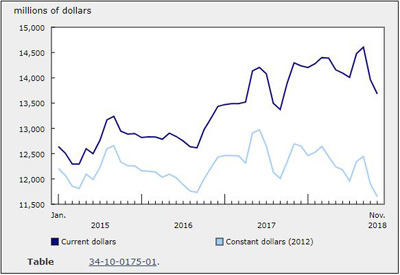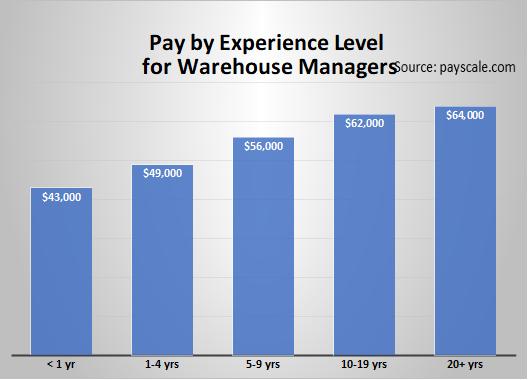How Businesses Can Benefit from Electric Vehicles

June 24, 2019
Horse-drawn carriages as we know them were the primary method of transportation for centuries. Yet, it took eight years for cars to outnumber horses [2] and just 13 for the automobile revolution to be complete.
At the start of his presentation during the inaugural Future of Power at Evergreen Brick Works in Toronto, Seba invited the audience to play a little game.
Look at the images [1] below:

The left is
New York City, 1900. In that sea of horse-drawn carriages, there is a single car. Tony asked if anyone can find it.
The right is New York City, 1913. In that sea of cars, there is a single horse-drawn carriage. Tony asked if anyone can find it.
According to Tony Seba, that’s the textbook definition of disruption.
The electric vehicle (EV) revolution has begun
Years ago, seeing an EV on the road was a rare curiosity.
But just like the horse-to-car shift of the early 1900s, the Canadian EV market is maturing and eating away at internal combustion engine (ICE) vehicles.
Here’s the evidence [3] (data collected September 2018):
• 35,000 — number of EVs sold in Canada between January 2018 and September 2018. That’s a 158% increase from the same time frame in 2017
• 13,000 — number of EVs sold in Canada between July 2018 and September 2018; an increase of 166% from the same period in 2017
• 8.3% — percentage of all new passenger cars sold in Canada that were EV
More options are hitting the market. More drivers are taking notice. More drivers are making the switch.
Why are Canadians choosing EVs?
Here are a few reasons why EVs are gaining popularity coast-to-coast:
• environmental concerns
• less maintenance
• affordability; the prices of EV and EV batteries continues to drop
• improved mileage
One of Tony Seba’s talking points at The Future of Power was that EVs would become the norm by 2030.
National attitudes support that theory. According to a poll conducted by Clean Energy Canada [4], Canadians believe EVs will quickly become mainstream:
• 64% — Canadians prefer that EVs become most cars on the road.
• 37% — Canadians believe that EVs will be the majority of cars sold around the world.
• 56% — Canadians think that EVs will be the majority or cars on the road within 10 years or less.
• 31% — Canadians strongly support government investing money to develop EV infrastructure.
Within a revolution, there is opportunity
During the horse-drawn carriage to automobile transformation, many business opportunities presented themselves.
After all, somebody had to collect and refine oil and gas for automotive purposes. Somebody had to develop efficient ways to manufacture rubber tires. Somebody had to establish mechanic and repair shops. Somebody had to create the modern traffic light. Somebody had to develop a system of licensing and taxation. And so on.
These business opportunities grew to become full-fledged industries.
The same idea applies to the EV revolution. For a variety of industries, there are opportunities to take advantage of.
Utilities
• Managed charging. Customers can charge normally, pay a premium to charge during peak demand, or use lower levels of energy (that takes longer to charge) and place less strain on the grid.
• Utility-run charging stations. By leveraging existing infrastructure, utilities can install, manage, and profit from EV charging stations installed in public locations, condo buildings, workplaces, schools, and other areas.
• Distributed energy resources (DERs). Solar farms generate power during the day, while peak demand kicks in the evening. EVs can store solar energy and send it back to the grid whenever its required.
Commercial businesses
• Converting to an EV fleet. Using EVs to drive your fleet can reduce money spent on fuel and maintenance. It also helps your business meet any sustainability targets and assists in attracting and retaining top-quality employees.
• Revenue stream. Depending on the nature of your employee parking lot, installing EV stations and charging non-employees to use them can unlock another source of revenues for your company.
Mining
• Increased demand. The average EV requires 330 lbs of copper for the frame. Batteries need more lithium, nickel, cobalt, and manganese than ICE vehicles [5]. As EV demand grows, so will the need for these raw materials.
Computing
• More power. Self-driving cars are the next step in the EV revolution. An autonomous car equipped with 10 high-resolution cameras requires 250 trillion operations per second to process [6]. That’s 100 times more than human operated cars and requires significant access to electricity and battery power.
Construction
• Land availability. As individually owned cars are taken off the road and replaced with ride-share vehicles, that minimizes the need for parking lots. That land can be allocated and used for more productive, community-centric facilities. It sounds like a stretch, but Tony Seba believes parking lots as we know them may become extinct.
This article was originally published by Spark Power; https://sparkpowercorp.com/2019/04/how-businesses-can-benefit-from-electric-vehicles/
Notes
[1] Images sourced from Mountain Town News
[2]Quora
[3] FleetCarma
[4] Clean Energy Canada
[5] Casey Research
[6] Tu Automotive











